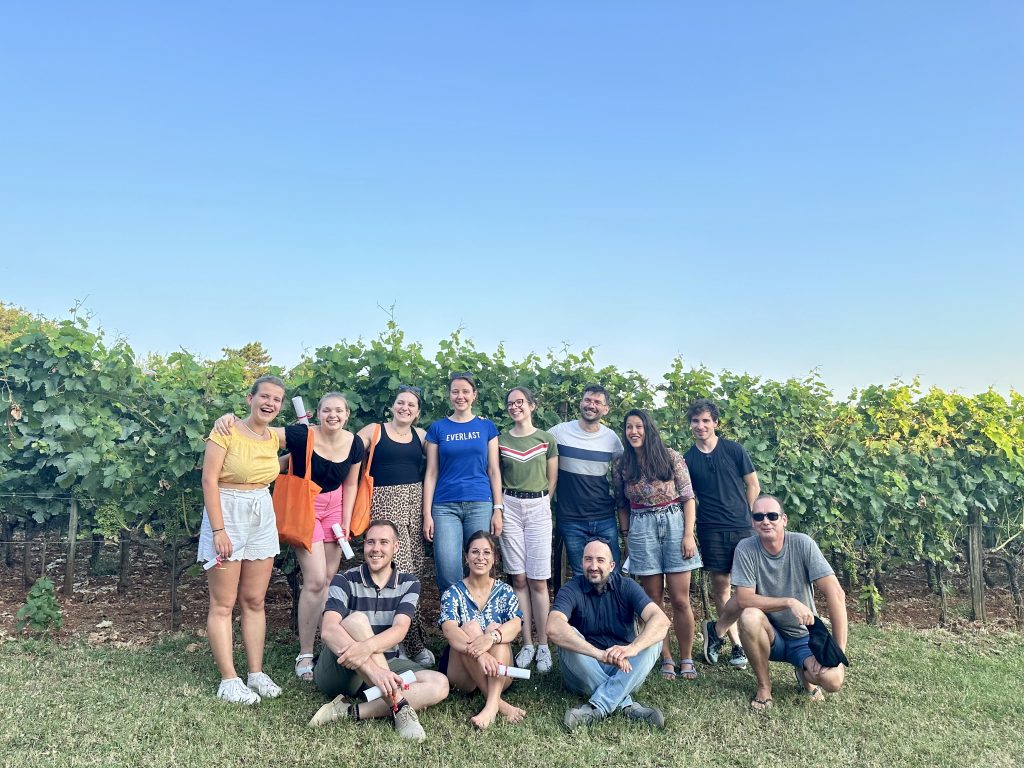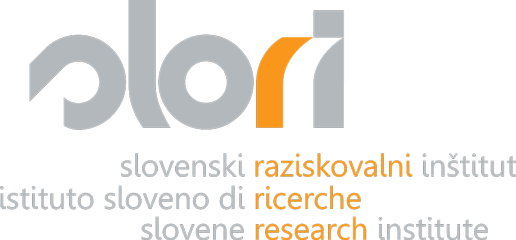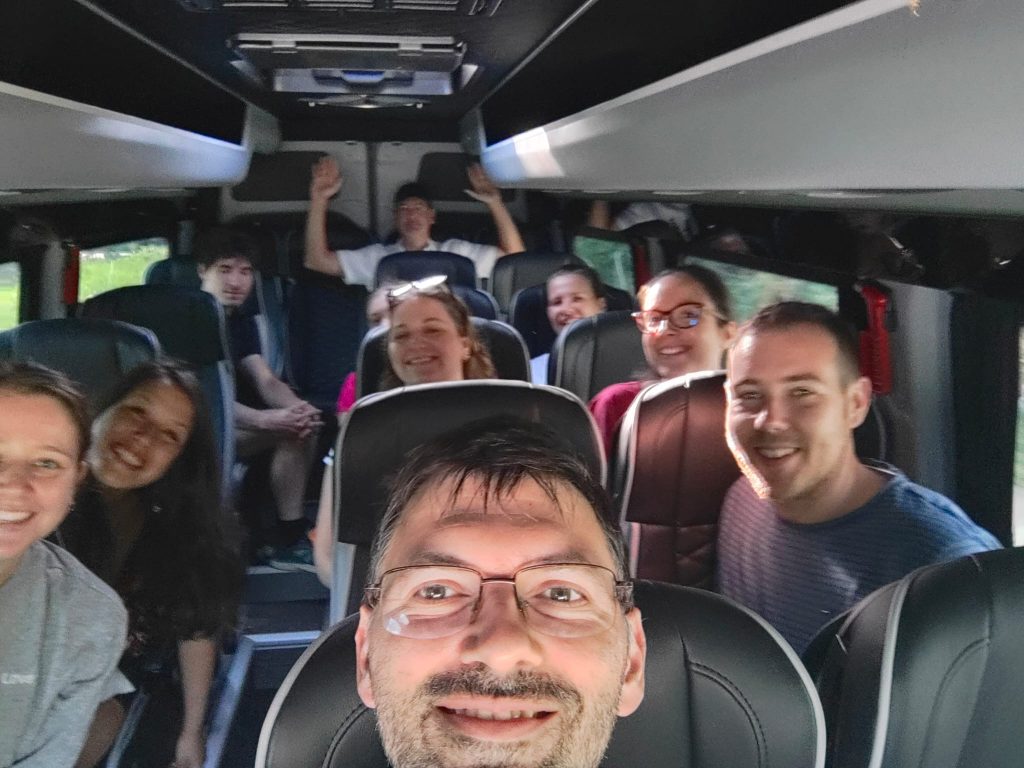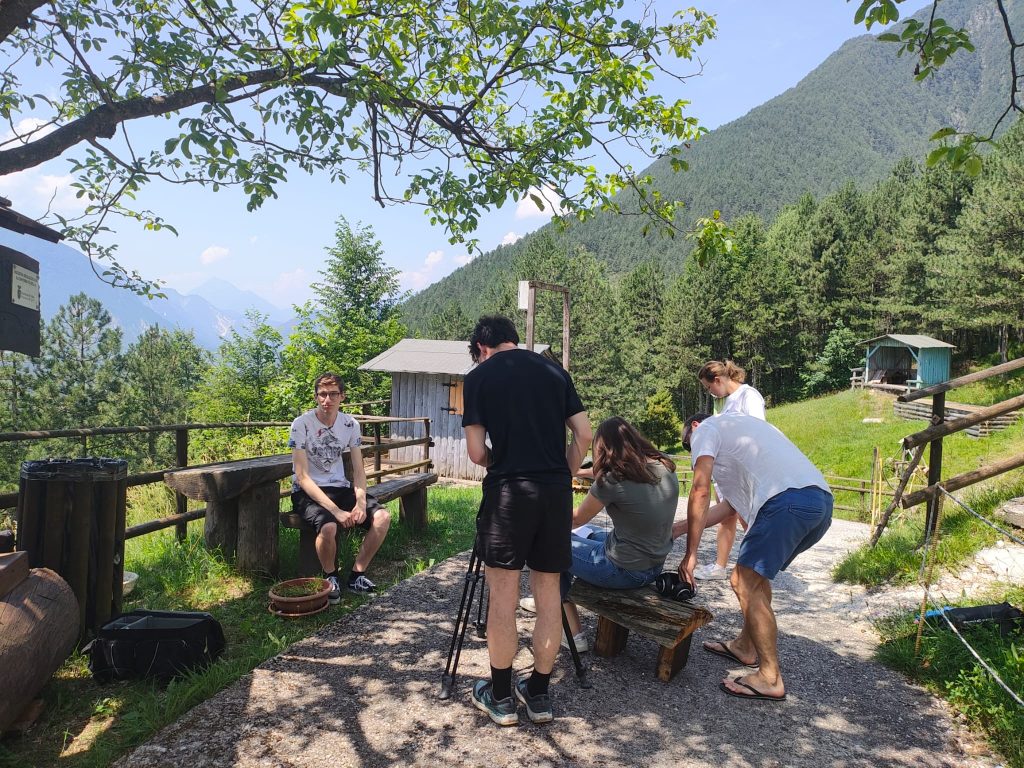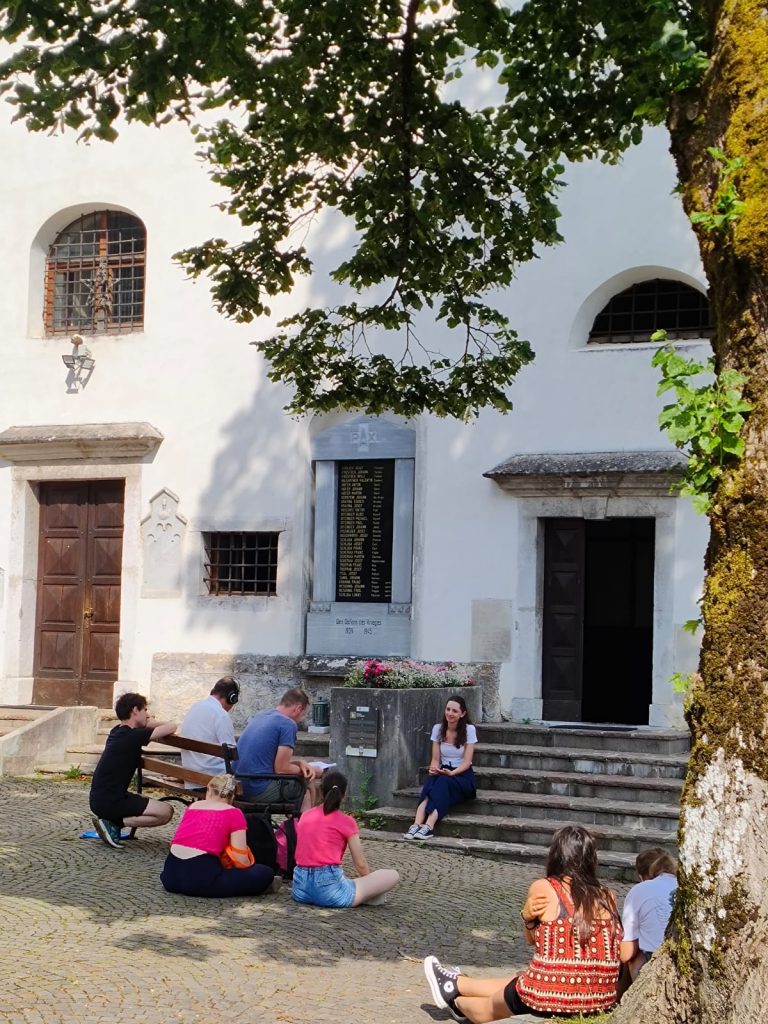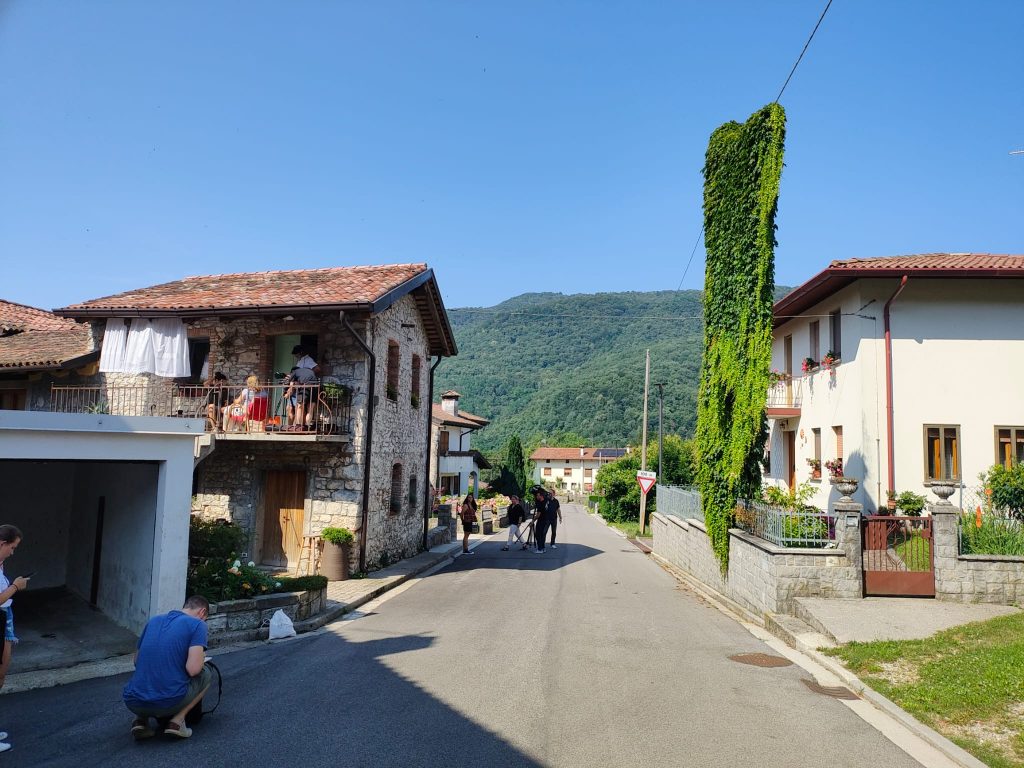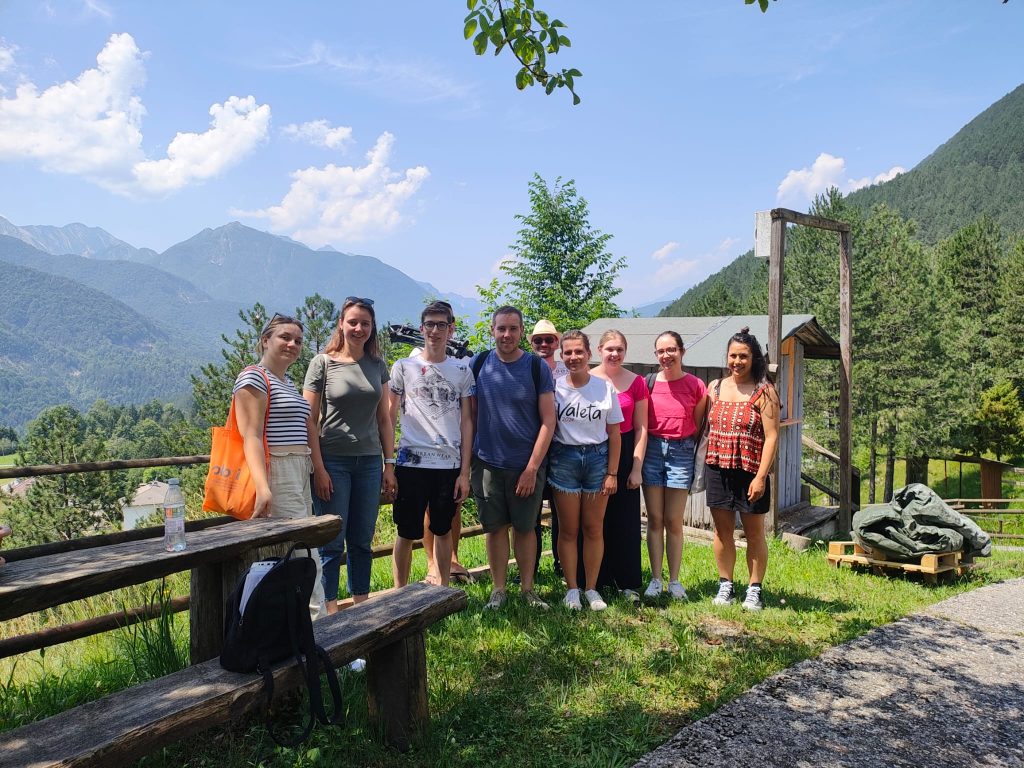The year 2024 marks a special occasion for the Slovene Research Institute (SLORI) as it celebrates its 50th anniversary. In its fifty-year history, SLORI has initiated various projects, including several junior research camps organized in collaboration with the History and Ethnography Department of the Slovene National and Study Library (NŠK). Between 1981, when the first camp took place in Barkovlje (Barcola), and 1998, during the establishment of the ethnographic museum in Rezija (Resia), no fewer than eighteen junior research camps were held. These camps were attended by Slovenian pupils and students from Italy, Slovenia, and Austria, guided by distinguished scholars from different research institutes and universities. The camps were held in different areas across the three provinces of Friuli Venezia Giulia where Slovenes reside.
In celebration of its 50th anniversary, SLORI’s Board of Directors decided to revive the Junior Research Camp, reinstating a long-standing tradition while also introducing new elements. This time, the project is in partnership with the Association of Young Slovenians in Italy (DM+), which played an active role in all phases of the project, especially in conceptual planning and selecting the young participants. Financial support for the project also came from the Office for Slovenians Abroad within the Slovenian Government.
The Junior Research Camp pursues three main goals: 1) to foster and expand young people’s interest in research; 2) to encourage mutual understanding and social interactions among youth from different geographical backgrounds; and 3) to produce a documentary about the identity of young Slovenes in Italy, which will be created by the young participants in close collaboration with their mentors, researchers, and experts across various fields.
The five-day summer research camp began on Monday, 8 July, and ended on Friday, 12 July. Seven young researchers from different areas within the Slovene community in Italy and nearby Slovenia participated in the camp. The participants were housed at the Nova Gorica Student Dormitory, where the first two days of the camp were dedicated to classroom learning. During the introductory lectures on Monday, the participants gained a deeper understanding of the Slovene community in Italy and familiarized themselves with social science research methods and approaches. The lectures were delivered by historian Štefan Čok, social scientist Devan Jagodic, anthropologist Helena Lupinc, linguists Matejka Grgič and Danila Zuljan Humar, and psychologist Susanna Pertot. On the second day, participants were introduced to the skills and processes involved in producing research documentaries. They were guided into the world of film production by director Jurij Gruden, who, together with cameraman Izidor Čok, will be responsible for creating a documentary. This was followed by the screening of a few short documentaries at BorGo Cinema in Gorizia, in collaboration with Kinoatelje, along with visits to the Feigl Library in the Trgovski dom as well as to the museum of smuggling and the museum of about the border at Pristava (Rafut border crossing, Gorizia).
On Wednesday, the group began their intensive fieldwork, which continued until Friday. The young researchers, accompanied by their mentors, travelled by van through the provinces of Trieste, Gorizia, and Udine, where they conducted and recorded interviews with twelve young members of the Slovene community. Despite the high temperatures, which made the fieldwork challenging, the group’s talent, motivation, and teamwork contributed to a relaxed and positive atmosphere.
In the coming months, the valuable empirical material collected will be carefully organized, analysed, and used for research purposes. Following this, the technical production of the documentary on the identity of young Slovenes in Italy will take place, with the premiere scheduled for SLORI’s 50th anniversary celebration in early November 2024.
